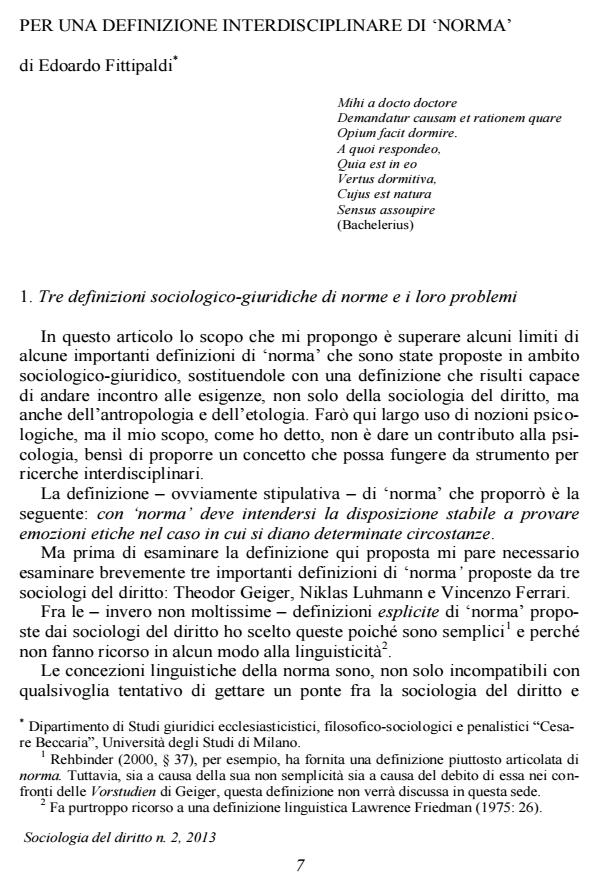Towards an interdisciplinary definition of "norm"
Journal title SOCIOLOGIA DEL DIRITTO
Author/s Edoardo Fittipaldi
Publishing Year 2013 Issue 2013/2
Language Italian Pages 29 P. 7-35 File size 321 KB
DOI 10.3280/SD2013-002001
DOI is like a bar code for intellectual property: to have more infomation
click here
Below, you can see the article first page
If you want to buy this article in PDF format, you can do it, following the instructions to buy download credits

FrancoAngeli is member of Publishers International Linking Association, Inc (PILA), a not-for-profit association which run the CrossRef service enabling links to and from online scholarly content.
The author proposes a definition of norm suitable not only for sociology and anthropology, but also for ethology. The term norm is defined as the stable disposition to experience superegoic emotions: chiefly, though not exclusively, anger, indignation, shame, guilt and pride. Language plays no role in this definition. Anger is the typical right-holder’s emotion. Thus, a legal obligation or prohibition is reduced to the right-holder’s stable disposition to discharge his aggressiveness in case of inaction or action, respectively, on the part of the perceived duty-holder. As for shame and guilt, these are the emotions that typically make up the illusion of being a dutyholder. Finally, indignation or contagious shame are typical of possible third spectators. According to the author, this analysis enables the conflicts in societies that are elicited by emotions to be framed more accurately. The author concludes by proposing a complete reversal of the traditional view of the connection between law and force, as well as by proposing to complete the opposition between shame and guilt cultures in a way that also allows for the theoretical possibility of cultures of anger and indignation
Keywords: Norm - Aggressiveness - Super-Ego - Ethology - Shame - Guilt
Edoardo Fittipaldi, Per una definizione interdisciplinare di "norma" in "SOCIOLOGIA DEL DIRITTO " 2/2013, pp 7-35, DOI: 10.3280/SD2013-002001